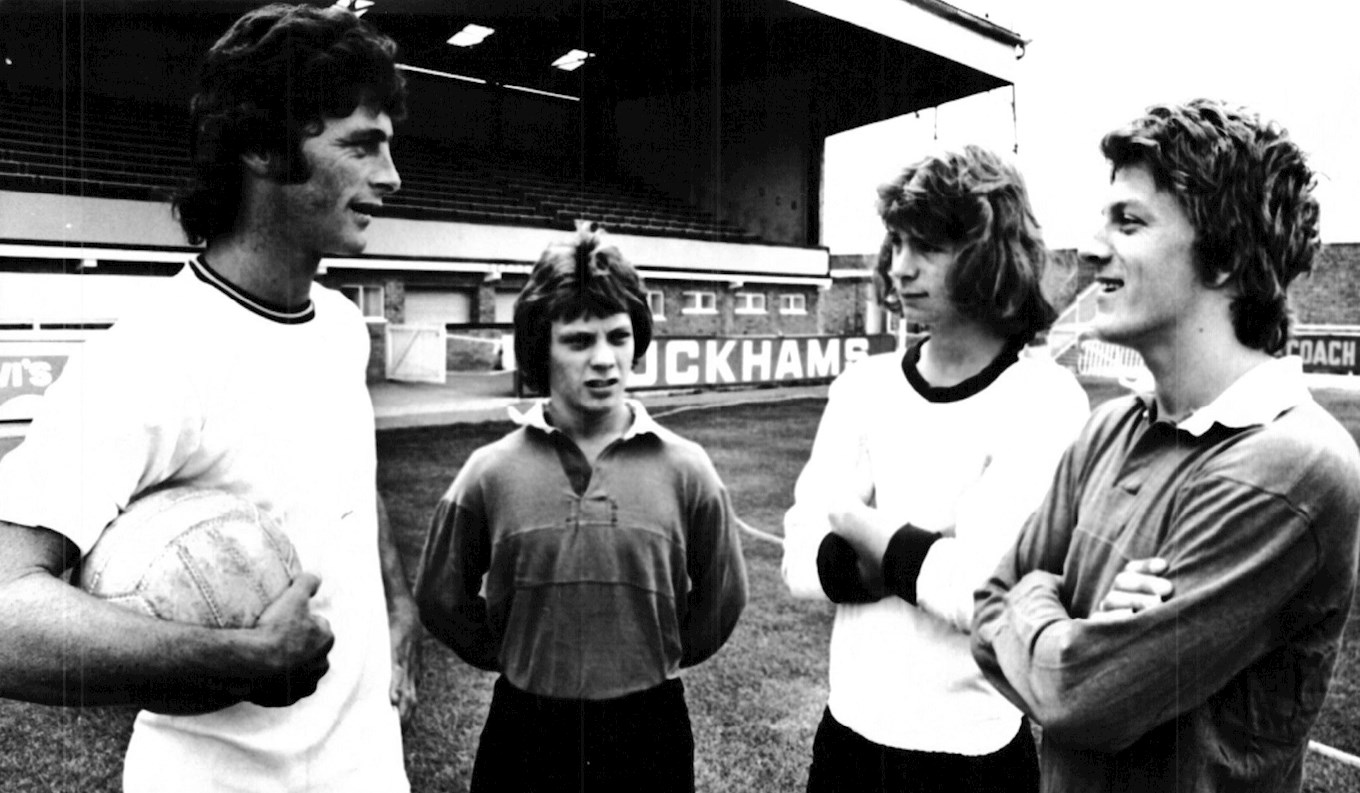The Cambridge United family is mourning the death, at the age of 77 on October 4, of Terry Eades, a hugely talented defender whose career in black and amber spanned two eras of the club’s history, writes Patrick Morgan...
Universally liked, admired and respected, Terry was signed from Southern League rivals Chelmsford City in February 1969 and, on his way to a total of 366 U’s matches, six substitute appearances and 12 goals, proved an influential and popular member of teams in both the Southern League and Football League.
His place in club legend was recognised by induction into the Cambridge United Hall of Fame in 2019 – only the second of the famous side that gained election to the Football League in 1970 to be so honoured.
Born in Banbridge, County Down in 1944, Terry joined Chelmsford at an early age following his family’s move to England. He starred for the Clarets in several late-1960s clashes with United before becoming, in the early weeks of 1969 at the age of 25, manager Bill Leivers’ fourth and final acquisition from the 1968 Southern League champions. A fee of £2,500 changed hands.
After seven years at New Writtle Street, he arrived with hopes that the U’s would be the non-League club chosen by Football League chairmen in the event of an existing club being voted out. Praising United’s professionalism, he had, he said, been unsettled by rumours that Chelmsford would move to semi-professional status.
Vying with Gerry Baker for the centre-half position, he made his Southern League debut at Bedford Town at the end of March and starred in a 2-0 win, contributing the first goal. With Leivers encouraging him to forage forward, he scored again as United won 1-0 at Nuneaton two days later.
Terry’s cultured, calm and skilful presence was a huge influence on the team as they claimed two successive titles and were elected to the Football League in the summer of 1970. He was one of only two United players making their League debuts as the first season kicked off against Lincoln City on August 15, but he never looked out of place as the U’s established themselves.
Voted player of the year by supporters on several occasions, he was often described as inspirational and outstanding. The Cambridge Evening News said on one occasion: “He cannot be a one-man team, but he tried.”
On 6 January 1974 Terry wrote himself into the history books when he became the first United player to score on a Sunday, as the U's drew an FA Cup tie with Oldham Athletic 2-2; United’s first had been an own goal. Soon afterwards he was recommended to Republic of Ireland manager Johnny Giles – his father had been born in Tipperary. So it was that he found himself marking teammate Graham “Willie” Watson, who was being tried out at centre forward as Ireland’s squad played a practice game against United at the Abbey.
He began a long association with the motor trade when he began working part-time for Holland Motors. As the club captaincy passed from Terry to Brendon Batson under Ron Atkinson, Brendon spoke generously of his friend: “He has been one of the best centre halves I’ve seen in the Third and Fourth Divisions and I’m surprised he has not gone on to higher things.”
After a short loan period at Watford, Terry was granted a testimonial in 1977 as his remarkable contribution to the United cause was recognised with the granting of a free transfer. But it wasn’t long before he was back as a non-contract player, passing on his knowledge and experience to younger players in the reserve side.
His last game came in May 1977, and in 1978 he signed for Histon. He became the Stutes’ manager when fellow ex-U David Bradford stepped down, but he couldn’t resist playing for long.
Terry’s long-delayed testimonial match finally came in April 1980, when Atkinson showed the respect in which he was held by fielding a strong West Bromwich Albion side at the Abbey.
A single-figure handicap golfer for nearly four decades and a member of the Gog Magog club for 50 years, he also took pride in his garden, particularly its roses.
Terry leaves children Anthony, Catherine and Dominic, and five grandchildren: Victoria, Luke, Josh, Ceci and Daniel. His wife Helen, whom he married in 1964 at Great Dunmow, died in 2018 after a brave fight against cancer. Terry showed similar character in his battle before succumbing to the disease at the Arthur Rank Hospice, a stone’s throw his beloved golf course.
